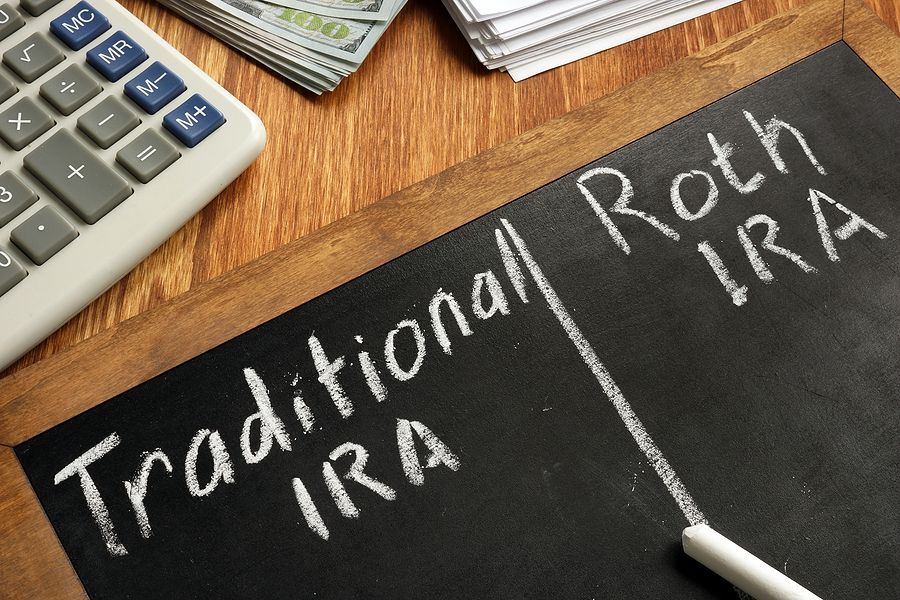Right now, many Americans are struggling with unemployment woes, lost wages or reduced hours, or feelings of uncertainty about their finances. It might not feel like the right time to make any big changes to how you save or spend your money, but there is one change that could consider now to protect your finances in the future: converting your IRA to a Roth IRA.
A Roth IRA is an individual retirement account that allows qualified withdrawals on a tax-free basis. The primary difference between a Roth IRA and a traditional IRA is how they are taxed. Roth IRAs are funded with after-tax dollars, which means the contributions are not tax-deductible. However, once funds are withdrawn from a Roth IRA, the money is tax-free. A deposit in a traditional IRA, on the other hand, is typically made with pretax dollars. People with a traditional IRA get a tax deduction on their contribution and pay income tax once the money is withdrawn upon retirement.
Roth IRA contributions must be made in cash, and cannot be in the form of securities or assets. A Roth IRA can be funded through sources such as:
Regular contributions
Spousal IRA contributions
Transfers
Rollover contributions
Conversions
Converting from a traditional IRA to a Roth IRA has many benefits. One of the most significant benefits of having a Roth IRA is that your contributions and earning will have tax-free growth. Once you pay taxes on the money that goes into your Roth IRA, you do not have to pay taxes as long as you take a qualified distribution. This means that you will not be pushed into a higher tax bracket, which can allow you to make more money in the long run, especially as tax rates increase, as they are expected to by 2026.
Additionally, you can withdraw from your Roth IRA at any time. While the money that you take out will not have the opportunity to grow, it will remain tax-free, and you can withdraw your contributions for any reason. On the other hand, if you chose not to withdraw your money from your Roth IRA, you can leave it intact and pass it along to your heirs.
Finally, having a Roth IRA means that you won’t have to take required minimum distributions (RMDs) on your account. Without a Roth IRA, you will face RMDs on your account once you reach 72, and it will be based on the size of your IRA. With a Roth IRA, you can avoid having to take RMDs.
While converting to a Roth IRA has many benefits, it is still a decision you should consider carefully or discuss with a financial advisor. However, converting from a traditional IRA to a Roth IRA is something you may want to consider as a retirement-planning tool for yourself and your family.


